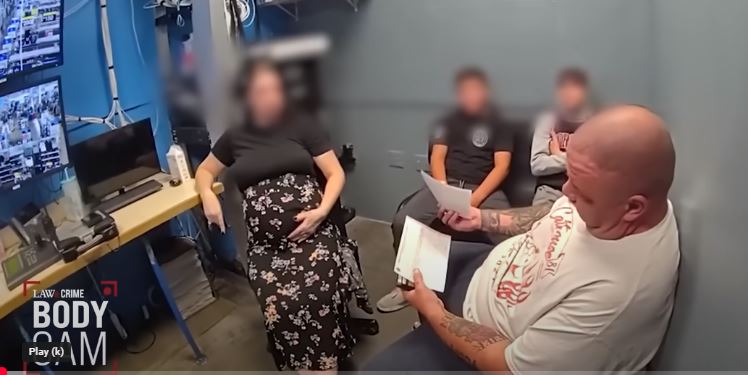Michigan Rules 901-903 – Evidence Authentication
Ever wondered how that document or recording made its way into a Michigan courtroom? The answer lies in Michigan Rules of Evidence 901 to 903, which govern the crucial step of authenticating evidence.
This article provides a factual, no-nonsense breakdown of these rules, drawing insights from the official Michigan Rules of Evidence Handbook.
Rule 901: The Key to Admission
At its core, Rule 901 states that before any evidence can be considered by the court, it must be properly authenticated.
This means proving, through sufficient evidence, that the item is indeed what it’s claimed to be. Think of it as verifying the identity of a witness before they can testify.
The rule doesn’t prescribe a specific method for authentication; it simply says there must be enough evidence to convince the judge that the item is genuine. This flexibility provides room for various situations and evidence types.
Unlocking Authenticity: Examples from the Handbook
The Handbook offers helpful examples to illustrate how Rule 901 might be satisfied in practice. Here are a few:
- Witness Testimony: Someone with firsthand knowledge of the evidence, like the author of a document or someone who witnessed a recording being made, can testify to its authenticity.
- Handwriting Analysis: A non-expert familiar with someone’s handwriting can offer their opinion on its genuineness based on familiarity, not just for this specific case.
- Comparison by Experts: An expert, like a handwriting analyst or audio-visual specialist, can compare the disputed item to known authentic samples.
- Distinctive Characteristics: The unique features of the evidence itself, like its internal patterns or specific content, can sometimes establish authenticity in conjunction with other circumstances.
- Voice Identification: Similar to handwriting, someone familiar with a voice can offer their opinion on its identity based on prior interactions.
- Telephone Conversations: Proof that a call was made to a specific number assigned to a particular person or business, coupled with self-identification during the call, can authenticate the conversation.
Have your rights been violated?
Have your driving priviledges been revoked?
Has your professional license been suspended?
Have you been charged with a crime?
Call our office to see if we can help
Komorn Law 248-357-2550
Rule 902: Self-Authentication Shortcuts
Certain types of evidence are so inherently reliable that they “speak for themselves” and don’t require additional authentication under Rule 901. Rule 902 lists these self-authenticating items, including government publications, certain business records, and certificates of marriage or birth.
Rule 903: Skipping the Witness in Certain Cases
Traditionally, written documents often required the testimony of a subscribing witness (someone who witnessed the signing) to be admitted. However, Rule 903 simplifies matters by stating that such testimony is unnecessary unless specifically required by other relevant laws.
Remember: These are just summaries, and the actual rules contain nuances and exceptions. For complex legal matters, consulting with a lawyer is always recommended.
Don't Own an F-16?
Just want your second amendment right back to protect yourself and your family? Call our office to see if we can help.
Important:
This article provides a simplified overview of the Michigan Rules of Evidence for informational purposes only. It should not be interpreted as legal advice. When facing legal matters, always consult with a qualified attorney for professional guidance.
The Michigan Rules of Evidence are subject to change over time. Always consult the latest official version for accurate information.
Here is the link to the Michigan Rules of Evidence Handbook. Check the footer for the latest update.
- You can find the latest versions of these resources on the Michigan Courts website: https://www.courts.michigan.gov/498aa6/siteassets/rules-instructions-administrative-orders/rules-of-evidence/michigan-rules-of-evidence.pdf
Related Articles
Evidence in Michigan Courts: A Guide to Rules 401-411
Understanding the Foundation: A Summary of Michigan Rules of Evidence 401-411 The Michigan Rules of Evidence (MRE), specifically Rules 401-411, lay the groundwork for what evidence can be presented in court and how it might influence the outcome of a case. This...
Evidence in Michigan Courts: A Guide to Rules 301-302
Michigan Rules of Evidence: A Guide to Rules 301-302 Presumptions, those inferences drawn from established facts, play a crucial role in both civil and criminal cases in Michigan. However, their application is carefully regulated by the Michigan Rules of Evidence,...
Evidence in Michigan Courts: A Guide to Rules 201-202
Michigan Rules of Evidence: A Guide to Rules 201-202 Understanding the Michigan Rules of Evidence is crucial for anyone involved in legal proceedings within the state. This article focuses on two key rules: 201** (Judicial Notice of Adjudicative Facts)** and 202**...
Evidence in Michigan Courts: A Guide to Rules 101-106
Navigating the legal system can be daunting, especially when it comes to understanding the rules governing evidence. This article sheds light on the first six articles of the Michigan Rules of Evidence (MRE), providing a helpful summary for legal professionals,...
More Posts

When Can Police Take Your Dash Cam?
You work hard. Now get ready to work harder to prepare to give more.In Michigan, police can take your dashcam footage in specific situations, primarily when they believe it could serve as evidence in a criminal investigation. Michigan law permits officers to seize...

People who are going to need a Lawyer – November 12, 2024
People who are going to need a LawyerMan so drunk field sobriety tests were ‘too dangerous’ sentenced to life in prison for repeated DWI convictions‘Several terabytes’: Diddy prosecutors shed light on ‘voluminous’ discovery, including iCloud accounts and dozens of...

Cambridge Analytica data breach comes before court
Oral arguments in Facebook v. Amalgamated Bank will beginThe justices are set to review securities law as they hear arguments in a significant case linked to the 2015 data breach involving Cambridge Analytica and Facebook. The tech giant’s effort to fend off federal...

Search and Seizure – Consent or Plain view
The Fourth Amendment was established to protect individuals from unreasonable searches and seizures, yet there are exceptions.In Michigan, understanding the concepts of search and seizure, particularly regarding consent and plain view, is crucial for both law...

A drunk driving investigation, a car wreck and a blood draw
A Case Summary: People v. Blake Anthony-William BartonOn October 11, 2024, the Michigan Court of Appeals issued a decision in the case People of the State of Michigan v. Blake Anthony-William Barton. The case involved a drunk driving investigation following a car...

Police say they can tell if you are too high to drive
Police say they can tell if you are too high to drive. Critics call it ‘utter nonsense’Haley Butler-Moore sped up to pass a semi on the highway when she suddenly saw the police lights. She’d left Albuquerque hours earlier, heading to a Halloween party in Denver. Tired...

Cannabis – The Rise and Fall and Trail of Survivors Pile Up
Thieves make off with 1,000 pounds of premium flower in cannabis from a corporate grower in Michigan. Then, the GM sells off 650+ pounds to pay employees.The recent theft of over 1,000 pounds of marijuana from 305 Farms, a corporate cannabis grower in West Michigan,...

If you have an LLC you must comply or face fines and possible prison
You work hard. Now get ready to work harder to prepare to give more.If you own or are a member of an LLC.You have a deadline of January 1, 2025Call us we can take care of it for you. 248-357-2550The new Beneficial Ownership Reporting requirements for LLCs and other...

Compounding Charges Laws in Michigan
Understanding Compounding Charges Laws in Michigan Compounding charges refer to the illegal act of accepting or agreeing to accept a benefit in exchange for not prosecuting a crime. In Michigan, this is considered a serious offense, and the law specifically prohibits...

Harris unveils new proposals targeting black men with cannabis legalization
"Harris unveils new proposals targeting Black men as she looks to shore up Democratic coalition" CNNAmid the ongoing national issues, Vice President Kamala Harris introduced new initiatives on Monday aimed at addressing the needs of Black men as she works to bolster...















